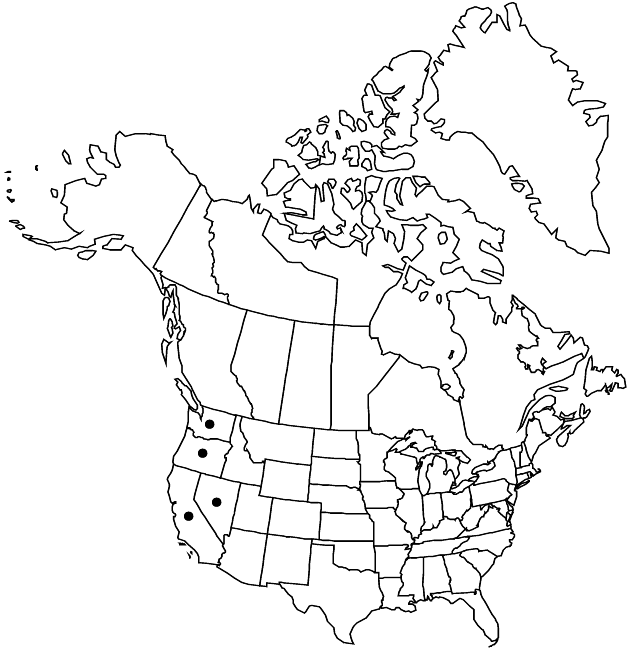Arnica discoidea
Pl. Hartw., 319. 1849.
Plants 15–60 cm. Stems mostly simple or distally branched. Leaves 3–7 pairs, sometimes crowded at stem-bases (basal leaves often persistent on sterile rosettes); petiolate (petioles narrow, 1.5–8 cm, often broadly winged on distal reduced leaves); blades usually ovate to broadly lanceolate, seldom subcordate, 2–12 × 1–7 cm, margins usually serrate to coarsely dentate or crenate, rarely subentire, faces glabrate to pilose, stipitate-glandular. Heads 3–10 (–30; erect). Involucres turbinate-campanulate. Phyllaries 8–15, ovatelanceolate to narrowly lanceolate. Ray-florets usually 0 (corollas of peripheral florets rarely dilated, resembling rays). Disc-florets 20–50; corollas yellow; anthers yellow. Cypselae dark gray, 6–8 mm, hirsute (hairs duplex) and stipitate-glandular; pappi white, bristles usually barbellate, sometimes subplumose. 2n = 38, 57, 76.
Phenology: Flowering May–Jul.
Habitat: Chaparral, oak and pine forests
Elevation: 100–1500 m
Distribution

Calif., Nev., Oreg., Wash.
Discussion
Selected References
None.